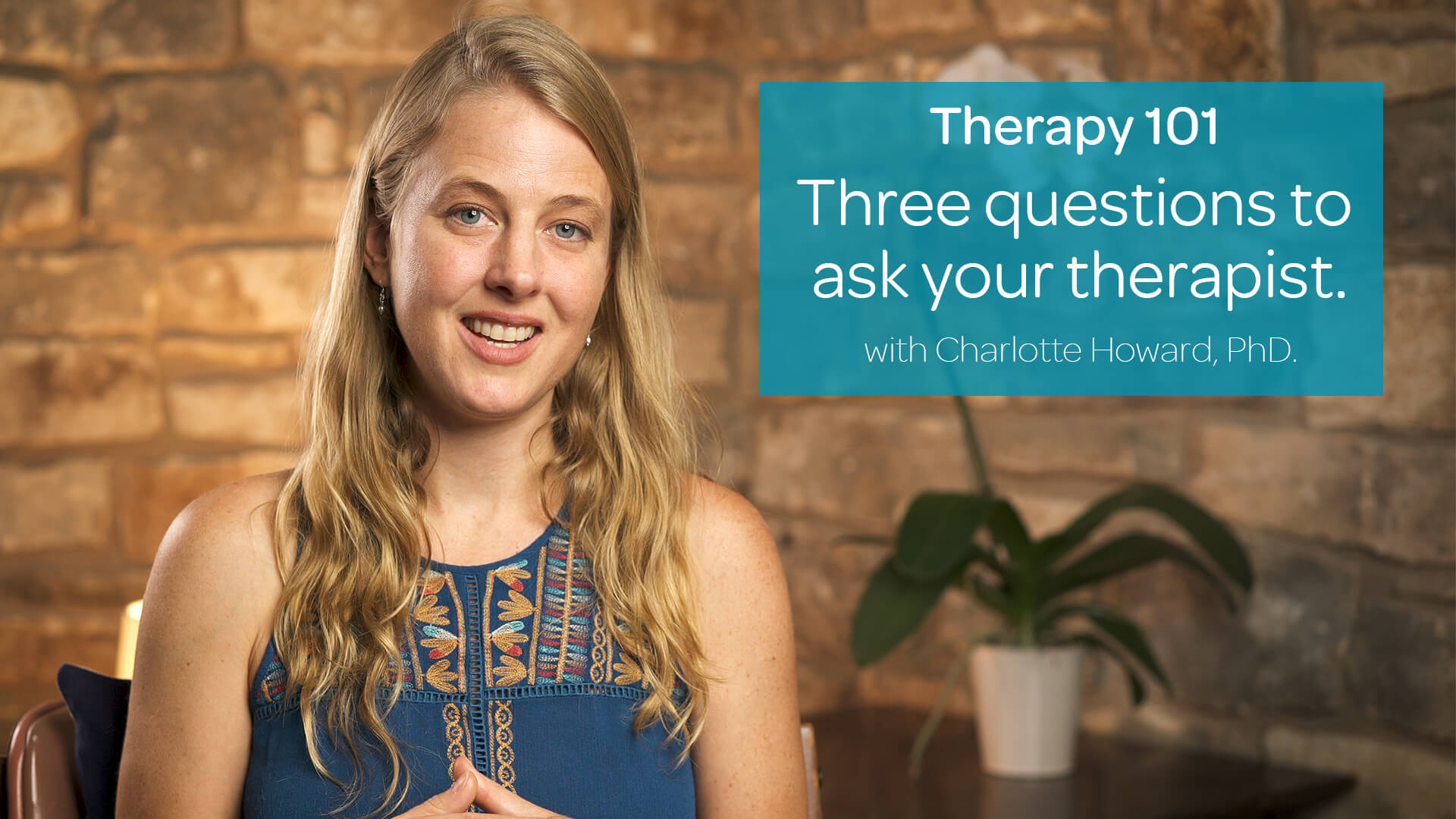It’s important to remember that the intake session is a mutual interview to make sure that you and your therapist will be a good fit. Your therapist is likely to ask you many questions but it’s also your chance to ask your own questions.
In this second episode of Therapy 101 Dr. Charlotte Howard discusses some of the important things to ask your therapist in your first couple of sessions!
I think that two of the most important questions that I would ask a potential therapist are: “If we were to work together what issues do you think we should focus on first?” and “How do you see us working on these together?” The therapist’s responses will tell you a lot. First and foremost, are they a good listener? This is of course an essential requirement to be an effective therapist. Were they listening to the concerns that you expressed or do they try to impose their own agenda on your therapy. A skilled therapist may over time help you to be aware of your potential blind spots, but if early on they are unable to reflect your goals and talk about how their approach will help you meet these goals then I think that’s a red flag.
How they respond to the second question: “How do you see us working on these together?” will give you a feel for their approach.
Do they talk about homework assignments and teaching techniques? They may have a more narrowly focused, structured approach to counseling focused on symptom reduction.
Do they talk about gaining insight into your current behaviors by studying the events of your past? This may indicate a more open ended approach focused on change through self awareness and gaining new insights.
Or do they talk about exploring feelings in the present moment? This may indicate that they use a more relational or emotion-focused approach to change It’s likely that they believe that developing meaningful loving relationships and gaining awareness of, and self compassion for our emotions are the keys to lasting change.
No one approach is going to be the right fit for everyone. Does their approach to change align with your own beliefs about change?
The third type of question is a question in the form of feedback. You should feel free to let your therapist know if you feel that they are missing the mark or helping you address the issues that you want to work on. If possible, try to find an example of this kind of misattunement and bring it up during the first couple of sessions. Do they respond with openness and curiosity or is their tone more defensive or lecturing? Talking though misunderstandings in an important part of any successful relationship and how they respond to your feedback will tell you a lot.
Since a good personality match between you and your therapist’s approach is such an important part of a successful treatment, it’s perfectly acceptable to ask more philosophical or personal questions directly. For example:
-What do you believe helps people to grow and make changes in their life?
-How do you define mental health?
-How do you think your approach might differ from other therapists?
The therapist’s responses will give you some sense of whether your outlook and values are in alignment
Some people find it helpful (and even freeing) to talk about intimate details of their life while still maintain more of a professional relationship with their therapist. For others it’s very important to feel that your therapist is a real human being. If you are more of this second type then feel free to ask more personal questions like,
Why did you become a therapist?
Or even just “Can you tell me a little more about yourself?”
See how they respond and also notice how comfortable they are responding to these types of questions. This will give you a lot of information about their therapeutic style.
A skilled and experienced therapist can adapt their style and integrate different approaches to help them work effectively with all different types of clients, but the same therapist won’t be a perfect fit for every client. For therapy to be most effective you have to feel comfortable sharing very intimate details and emotions about your life. It’s worth taking the time to feel out if this is someone who is a good listener and who you trust and respect.

